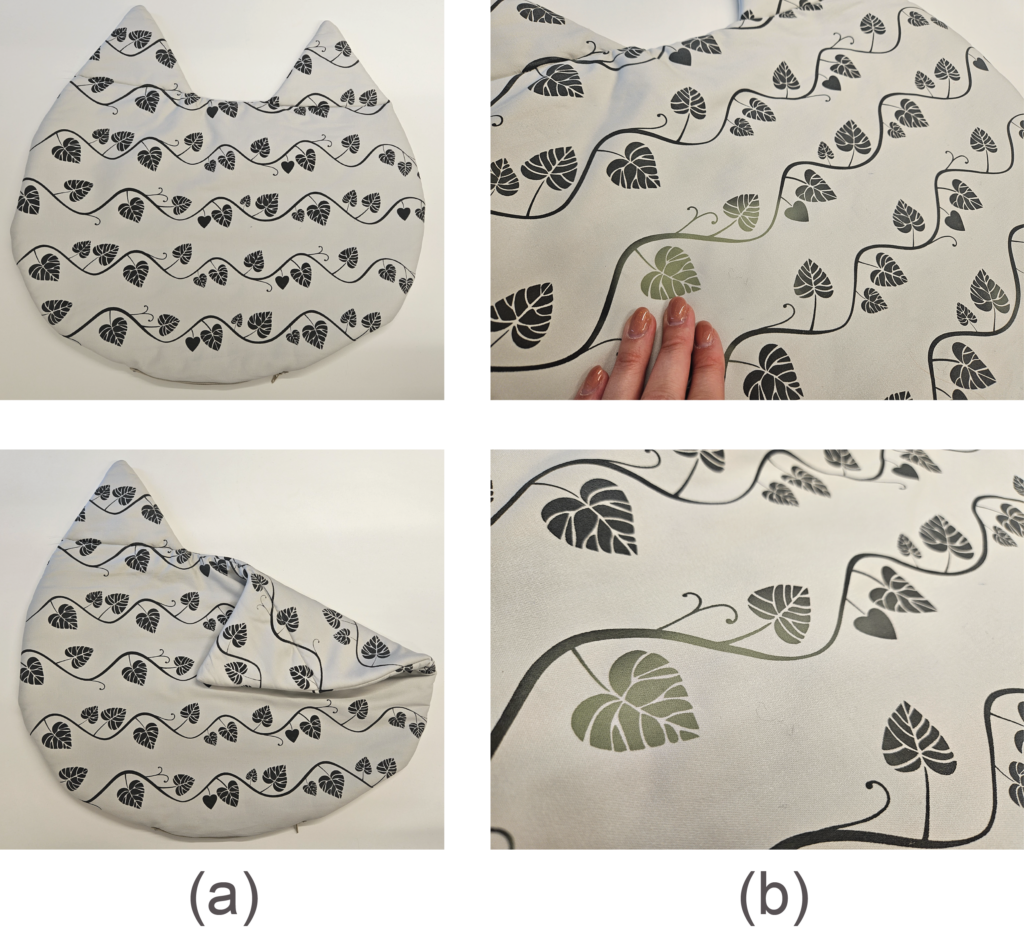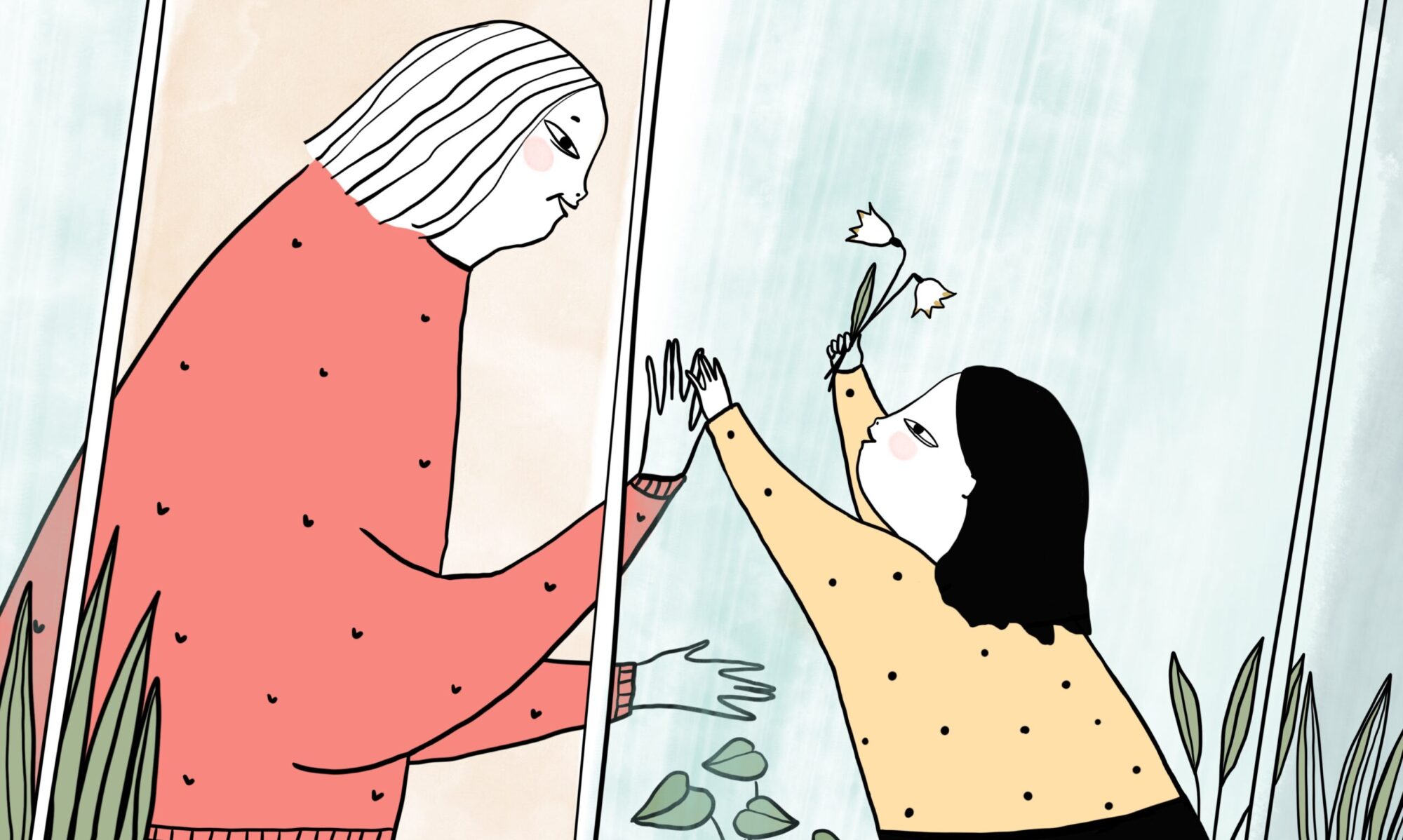Projektist – Toetades põlvkondade ülest vaimset heaolu: Keha-kaasav mäng lastele ja nende kaugel elavatele vanavanematele
Pered on tänapäeval sageli jaotunud eri riikide ja kontinentide vahel. Kuigi digitaalsed tööriistad, nagu videokõned, aitavad lastel ja vanavanematel sidet hoida, võib liigne ekraaniaeg kahjustada laste arengut ning vanematel inimestel võib tehnoloogia kasutamine olla keeruline. Käesolev projekt uurib, kuidas luua tähenduslikke ühendusi väljaspool ekraani kehast lähtuva sensoorse mängu kaudu.
Meie eesmärk on toetada nii laste (4–7-aastased) kui ka nende geograafiliselt kaugel elavate vanavanemate vaimset heaolu, luues mängulisi, multisensoorseid kogemusi, mis toetavad läheduse, rõõmu ja eesmärgitunde kujunemist.
Projekt on Eesti Kunstiakadeemia (EKA) ja Tallinna Tehnikakõrgkooli (TTK) koostöö, mis toob kokku teadmised disainiuuringutest, nutitekstiilidest ja heaolutehnoloogiatest. Projekti rahastab Eesti Kultuuriministeerium.
About the Project – Enhancing Intergenerational Mental Wellbeing: Embodied Play for Children and Their Remote Grandparents
Families today are often spread across countries and continents. While digital tools like video calls help children and grandparents stay connected, too much screen time can harm children’s development and older adults may struggle with technology. This project explores how to create meaningful connections beyond the screen – through embodied, sensory play.
The goal is to support the mental well-being of both children (ages 4–7) and their geographically distant grandparents by designing playful, multisensory experiences that nurture closeness, joy, and purpose.
The project is a collaboration between the Estonian Academy of Arts (EKA) and TTK University of Applied Sciences, bringing together expertise in design research, smart textiles, and well-being technologies. The project is funded by the Estonian Ministry of Culture.
What we are doing
The project’s aim is to develop and test multisensory, textile-based prototypes that allow children and their grandparents to connect through touch, sound, and play – without relying on screens. The research is structured around three case studies:
- Co-designing with families
- Children and grandparents take part in the design process.
- Together, they explore playful ideas using textures, sounds, and interactive objects.
- Exploring well-being through play
- Families test early prototypes to see how sensory play impacts feelings of closeness, enjoyment, and purpose.
- The study examines how such activities influence intergenerational mental health.
- Playing across distance
- Prototypes are developed into real-life solutions that families can use remotely.
- The study explores how well they support play and connection over time.
The first prototype
At Tallinn Design Festival (Disainiöö) 2025, we are showcasing the first prototype developed in the project.
- The prototype is made from soft textile materials that can be filled to become either a soft toy or a pillow.
- When touched, the printed colors on the fabric change with body heat, creating a playful, sensorial response that brings interaction to life.
- This tangible interaction invites both children and grandparents to explore touch and color as a shared form of play, offering a simple yet powerful alternative to screen-based communication.

Key results
- Participatory methods: The research has demonstrated that even very young children are capable of co-creating new forms of play with their grandparents.
- Prototypes: The first smart textile prototype has been developed. The next steps focus on its iterative improvement, exploring it further together with grandparents and grandchildren, while integrating materials such as chromic dyes, textiles reactive to touch and vibration motors.
- New knowledge: The project contributes methods and design approaches that can be applied in contexts such as nursing homes, kindergartens, or therapeutic settings.
- Scientific contribution: Early findings have been shared through Nordes 2025 conference paper Relational Design for Remote Intergenerational Sensorial Play Experiences (Kuusk, Kristi, Azeem Hamid, Zaur Babayev, Paula Veske-Lepp, and Nesli Oktay. 2025. ‘Relational Design for Remote Intergenerational Sensorial Play Experiences’).
Why this matters
- For families: Helps reduce loneliness and strengthen bonds across generations.
- For children: Offers developmentally healthy alternatives to screen-based communication.
- For older adults: Provides playful, accessible ways to stay close to grandchildren.
- For society: Contributes to mental health prevention strategies and innovations in smart textiles.
Team
Project leader:
- Kristi Kuusk (Estonian Academy of Arts)
Core research team:
- Azeem Hamid (Estonian Academy of Arts)
- Zaur Babayev (Estonian Academy of Arts)
- Nesli Hazal Oktay (Estonian Academy of Arts)
- Paula Veske-Lepp (TTK University of Applied Sciences)
Expert partners:
- Helen Kool (TTK University of Applied Sciences)
- Seçil Uğur Yavuz (Free University of Bozen-Bolzano)
- Michaela Honauer (University of Twente)
